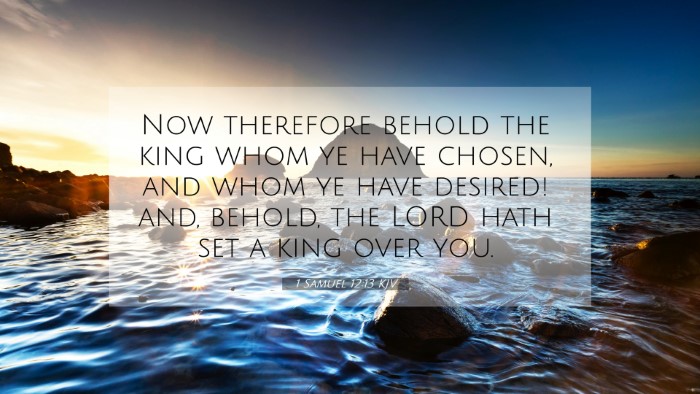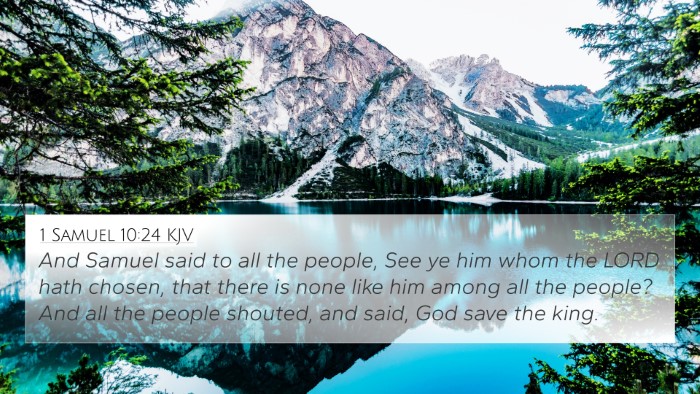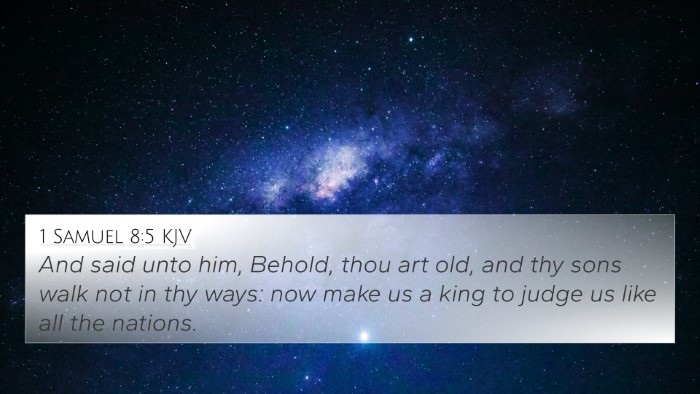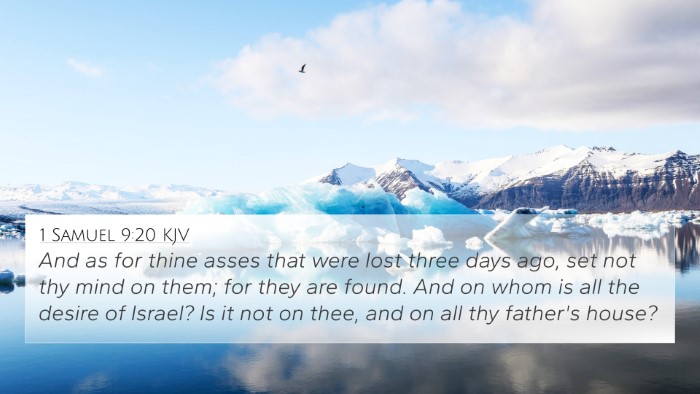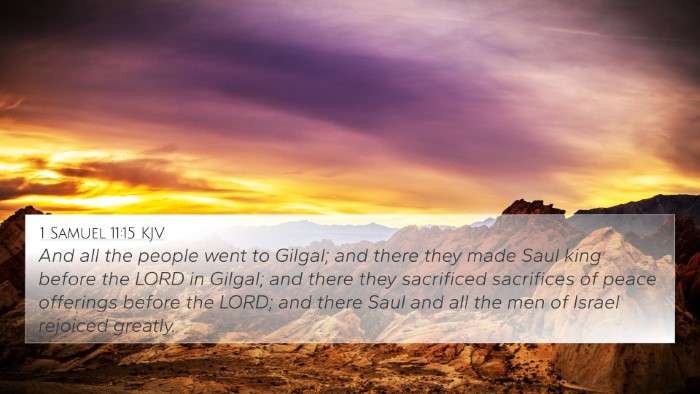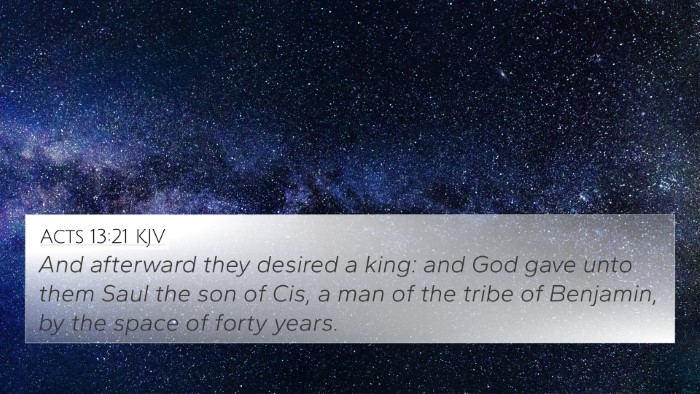Understanding 1 Samuel 12:13
Verse: 1 Samuel 12:13 (KJV) - "And now, behold the king whom ye have chosen, and whom ye have desired! And, behold, the Lord hath set a king over you."
This verse marks a pivotal moment in Israel's history, reflecting both the people's desire for a king and the divine response to that desire. In this summary, we will explore the meanings of this scripture through insights from public domain commentaries, emphasizing connections with other Bible verses.
Verse Context
This verse occurs during Samuel's farewell address to the people of Israel, where he reminds them of their decision to seek a king like the nations around them. Samuel highlights that God's sovereignty has been maintained despite their request.
Commentary Insights
Matthew Henry's Commentary
Henry observes that this verse illustrates the consequences of Israel's choice. The people's desire for a king signifies their lack of trust in God's governance. Henry mentions the irony of their choice, noting that while they sought a king to lead them, it was ultimately God who ruled over them through that king.
Albert Barnes' Notes
Barnes expands on the idea that this verse captures a moment of transition for Israel. The request for a king represented a shift from a theocratic to a monarchical system, which Barnes interprets as a fulfillment of the people's wishes but also as a warning of the consequences of their demand. He emphasizes the dual role of the king—as a chosen leader from among them, yet under God's ultimate authority.
Adam Clarke's Commentary
Clarke discusses the significance of the statement "behold the king whom ye have chosen." He argues that this king, while physically present, is bound to God’s will. Clarke also links this selection to previous warnings about kingship found in Deuteronomy 17:14-20, providing a historical context for the implications of having a human king.
Cross-References
1 Samuel 12:13 is interconnected with several other biblical passages that highlight similar themes of leadership, divine authority, and the consequences of human desires:
- Deuteronomy 17:14-20 - Provides guidance on Israel's monarchy and sets expectations for a king.
- 1 Samuel 8:6-7 - Details Israel’s request for a king and God's initial discontent with their demand.
- 1 Samuel 10:19 - God’s response to Israel’s rejection of Him as king.
- 1 Timothy 6:15 - Reminds readers of God's ultimate sovereignty and the notion of kingship.
- Psalm 75:7 - Declares that God is the one who judges and sets up rulers.
- Isaiah 33:22 - Highlights God's role as a lawgiver and king.
- Romans 13:1 - Discusses the concept of authority being instituted by God.
Connecting Themes
In interpreting 1 Samuel 12:13, we find rich thematic connections within the biblical narrative that reveal God's intention and humanity's response.
- Human Desire vs. Divine Will: This verse encapsulates the ongoing struggle between God’s plans and human desires, a theme resonant throughout Scripture.
- The Nature of Leadership: The selected king serves as both a fulfillment of Israel's demand and a reflection of God's acceptance of their choice, mirroring the complexities of leadership in faith.
- God's Sovereignty: Despite Israel's choices, God's rule remains paramount, a stability that is reaffirmed throughout both the Old and New Testaments.
Conclusion
1 Samuel 12:13 serves as a significant reminder of God's grace and sovereignty in response to human choices. Examining this verse through various commentaries provides deeper insights into its meaning and implications. By cross-referencing it with other scriptural references, we emerge with a fuller understanding of the interconnectedness of the Bible and the themes that emerge from it.
Further Study Suggestions
To grasp the full implications of 1 Samuel 12:13, consider using tools for Bible cross-referencing such as:
- Bible concordance for finding related passages.
- Cross-reference Bible study materials for thematic explorations.
- Engaging in comparative studies across the Old and New Testaments to identify recurring patterns and lessons.
By deepening your study with these resources, you can enhance your understanding of how this verse connects with others within the Scripture and how the overarching narrative reveals God's plan for humanity.


